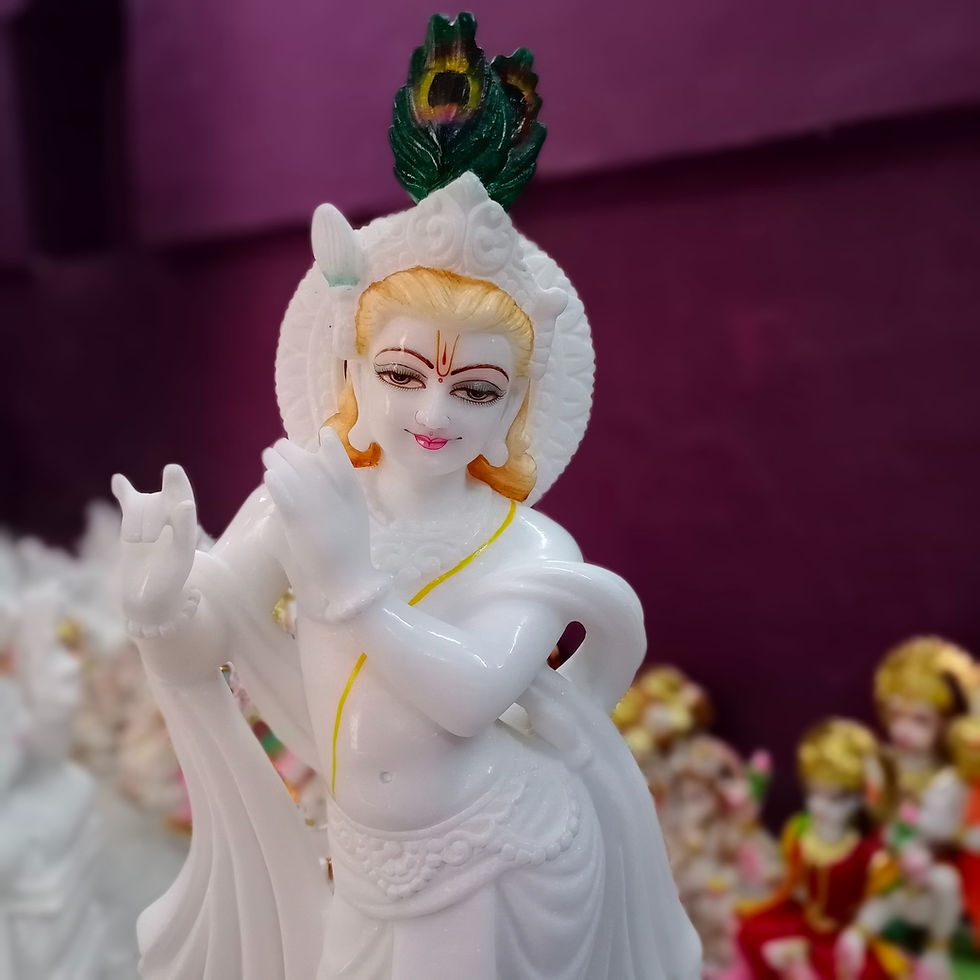Bhagavad Gita - 4.7 and 4.8
- Sneha Chovatiya

- Dec 26, 2020
- 1 min read

Bhagavad Gita (“Song of God” or “Song of the Lord”) is one of the most important texts of Hinduism. It is a dialogue between Lord Krishna and warrior-prince Arjuna. On this Gita Jayanti, let us learn two verses - 7 and 8 from chapter 4.
परित्राणाय साधूनां विनाशाय च दुष्कृताम् |
धर्मसंस्थापनार्थाय सम्भवामि युगे युगे || 8||
paritrāṇāya sādhūnāṁ vināśhāya cha duṣhkṛitām
dharma-sansthāpanārthāya sambhavāmi yuge yuge
Word meaning and Translation—
Verse 7 -
yadā—whenever; yadā—wherever; hi—certainly; dharmasya—of religion; glānir—discrepancies; bhavati—manifested, becomes; bhārata—O descendant of Bharata; abhyutthānam—predominance; adharmasya—of irreligion; tadā—at that time; ātmānaṁ—self; sṛijāmi—manifest; aham—I.
TRANSLATION
Whenever and wherever there is a decline in religious practice, O descendant of Bharata, and a predominant rise of irreligion—at that time I descend Myself.
Verse 8 -
paritrāṇāya—for the deliverance; sādhūnāṁ—of the devotees; vināśhāya—for the annihilation; ca—also; duṣhkṛitām—of the miscreants; dharma—principles of religion; sansthāpanārthāya—to reestablish; sambhavāmi—I do appear; yuge—millennium; yuge—after millennium.
TRANSLATION
In order to deliver the pious and to annihilate the miscreants, as well as to reestablish the principles of religion, I advent Myself millennium after millennium.
Swami Vivekanand’s Translation:
"Whenever virtue subsides and wickedness prevails, I manifest Myself. To establish virtue, to destroy evil, to save the good I come from Yuga (age) to Yuga."







Comments